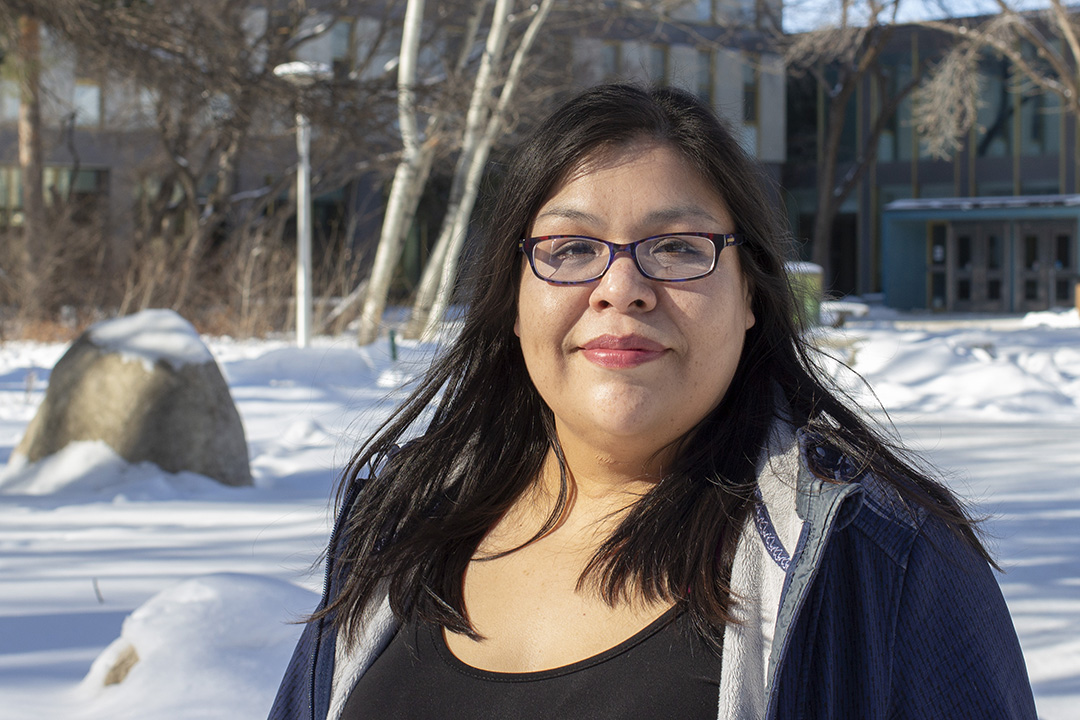
USask student to showcase Indigenous after-school proposal at national gathering
A second-year University of Saskatchewan (USask) student will soon travel to Montreal to present innovative ideas for an after-school program centred on Indigenous culture.
By Noah CallaghanJanice Osecap’s proposal was given a stamp of approval from the Canadian Institutes of Health Research (CIHR), which is hosting the upcoming Idea Fair and Learning Circle on Indigenous Gender and Wellness in June.
Osecap received a travel award provided by CIHR to bring interested First Nations, Inuit and Métis Peoples, researchers, organizations, Indigenous community members and others to the traditional unceded territory of the Kanien'keha:ka (Mohawk) people from June 18-20.
“It’s exciting because I find my culture fascinating and I hope there is a way to connect with younger people,” said Osecap, a Cree mother from Moosomin First Nation in Saskatchewan. “Being able to understand who they are as a person, they can develop from there and understand what being an Indigenous person means.”
Osecap is proud of her cultural upbringing. The support from CIHR means she is a step closer to realizing her dream of making Indigenous traditions more accessible to youth.
Her proposal is based on existing after-school programs, such as those that are focused on sports, but aims to create positive identities and build individual confidence for Indigenous youth.
“In order to be cultural and in order to learn it, you have to be exposed to it. In order to be exposed to it, you have to live it,” said Osecap. “In order to live it, you have to get right into those experiences and this is what it will offer them—those experiences that they won’t get anywhere else.”
Osecap’s proposal was inspired by her first-year university experience attending the College of Arts and Science’s Indigenous Student Achievement Pathways (ISAP). She enjoyed her time with ISAP, noting “when a person feels like they belong they are more inclined to succeed.”
Currently Osecap is a student in the Indian Teacher Education Program (ITEP) in the College of Education, but she has remained connected to ISAP by volunteering as a peer mentor. She also promotes an inclusive community at USask by serving as the ambassador for the Trish Monture Centre for Student Success, which is located at the top of the ramp in the Arts Building, and taking part in the new women’s birthing network on campus.
Last year, Osecap received an Indigenous Student Achievement Award for leadership, recognizing her for encouraging student participation in ISAP learning communities. Osecap helped boost class engagement by “not promoting cliques or those kinds of things, but being able to exist among a whole area of people and connecting with them individually,” she said.
She describes herself as “a cheerleader,” with the motto of “let’s tackle this together and get motivation up and make daunting tasks seem more fun.”
“Janice is non-judgemental—which is so important because students come with really varied experiences and academic preparation,” said ISAP coordinator Dr. Sandy Bonny (PhD). “She is really good at coaching and motivating people to put in the effort without making them feel at a deficit.”
Osecap said receiving the Indigenous Achievement Award played a role in motivating her and giving her the confidence to submit the after-school program proposal for inclusion in the Idea Fair and Learning Circle.
As an undergraduate student leader, she wants “to help everybody understand and realize that you have a place” at USask.
“You do belong. You can succeed here,” she said. “There’s a spot for you; don’t feel unwelcome.”

